Front Line Defenders Annual Lecture
The Annual Front Line Defenders Lecture was established in 2013 to provoke discussion and debate about the range of issues affecting human rights defenders as they work tirelessly to bring about changes and build robust civil societies.
Held in partnership with universities in Dublin, Belfast and Galway, the lecture is broadly accessible to a general audience with an interest in philosophy, law, human rights or politics.

2024 Annual Lecture
11 - 14 March 2024 in Dublin, Galway and Belfast
How Afghan Women are Defying the Taliban
Speaker: Horia Mosadiq
Horia Mosadiq is an Afghan Woman Human Rights Defender (WHRD) and journalist with more than two decades of experience in human rights, peace, justice and reconciliation, transitional justice, gender, security, and violent extremism in Afghanistan and South Asia. A well-known and well-respected WHRD, Horia is the founder of a number of organisations, including Conflict Analysis Network (CAN), a research, advocacy, and capacity-building think thank focusing on violent extremism, radicalisation, and its impact on human rights; as well as Safety and Risk Mitigation Organization (SRMO), which focuses on the protection of Human Rights Defenders.
With ample experience as a researcher and advisor, she has worked with many international organisations and think thanks including European Institute of Peace (EIP), Geneva Call, Safer World, PEN International, International Alert, Amnesty International, UNICEF, Action Aid, CIVICUS, UNICEF and UNDP among others. She has received numerous awards including the 2007 National Human Rights Award in Afghanistan, the 2012 and 2015 Women Rights Defender Award from Amnesty International, and her most recent one, the 2020 Award from Afghan Women’s Network (AWN) for her outstanding work on women, peace, justice and reconciliation.
Lecture description:
The Taliban’s takeover in August 2021 sparked a new period of prolonged and profound repression of human rights in Afghanistan, which has impacted Afghan women and girls in particular.
Horia Mosadiq’s lecture addressed human rights, particularly the situation for women’s rights under the Taliban and the struggle of Human Rights Defenders and Women Human Rights Defenders in this context, as well as what we can do to support them.
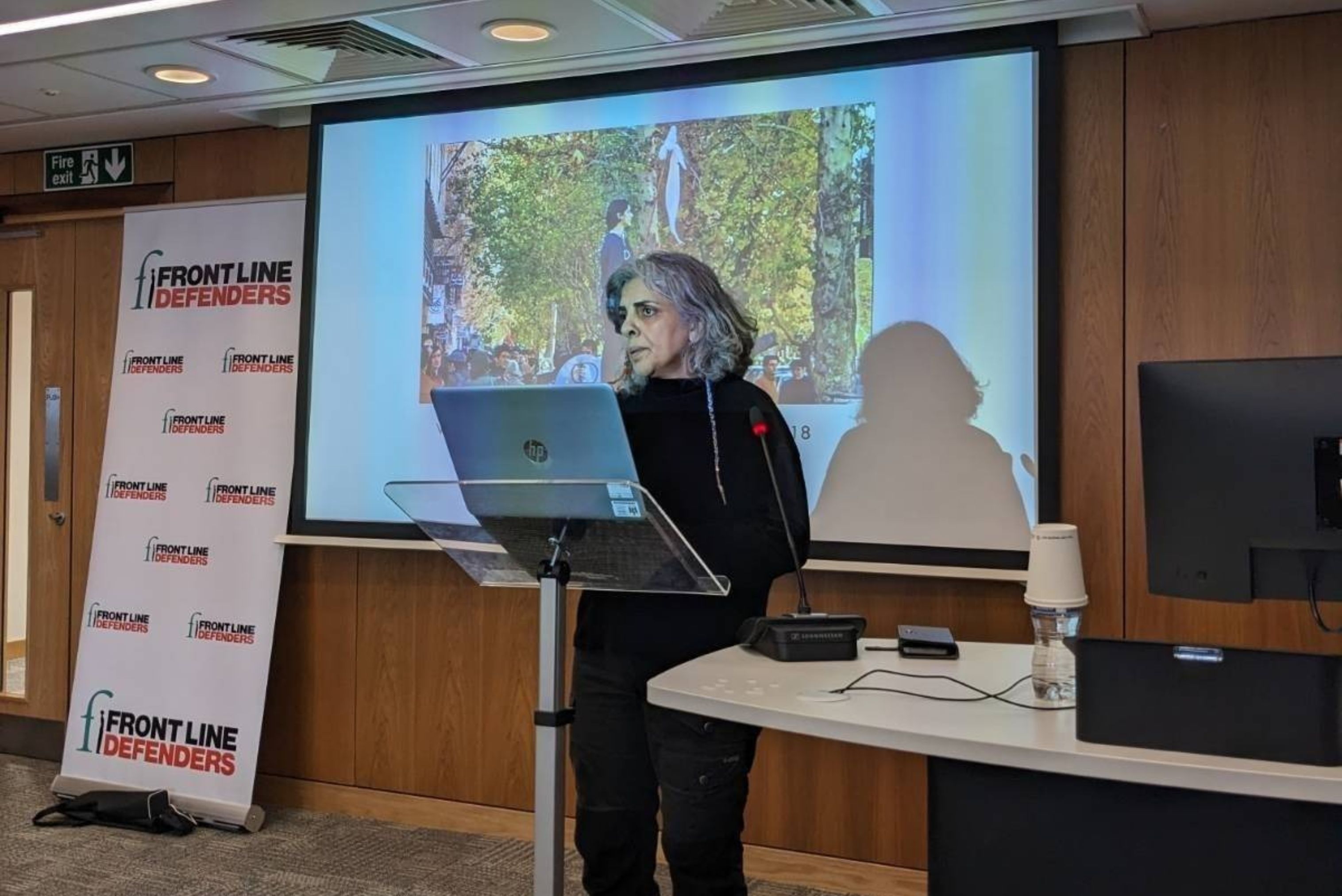
2023 Annual Lecture
29 - 31 March 2023 in Belfast, Dublin and Galway
Jin Jian Azadi / Woman Life Freedom: A social vision for human dignity and human rights
Speaker: Parvin Ardalan
Parvin Ardalan is a feminist activist, journalist, and writer with a background in the grassroots feminist movement in Iran. She is currently a board member of Swedish PEN and a member of the network Feminists for Jina. She currently works at the Unit for Documentation and Freedom of Expression at Malmö City Archives.
Her interest in gender, social movements, and migration led her to launch a process in a joint effort with civil society and numerous cultural institutions to create Women Making HERstory – a project committed to the unveiling, visualising, and rewriting the life and work of women with migration backgrounds in Sweden. Her next process was launching Migration Memory Encounters, where the knowledge, experiences, and memories of migrants in various cultural fields have been rediscovered through live performances and installations in Sweden.
She was a co-founder of the Women’s Cultural Center and The One Million Signature Campaign in Iran – a grassroots movement aimed at repealing discriminatory laws against women in Iran. She was awarded the Olof Palme Prize In 2007 and has lived in exile since 2009. She was the first guest writer of Malmö City (2010-2012) in Sweden under the ICORN (The International Cities of Refuge Network) programme.
Lecture description:
The government’s murder of Jina Amini in September 2022 rocketed Iranian society into a revolutionary moment where women emerged as a symbol of resistance at the intersection of all forms of discrimination. In this paradigm shift, the past and current protest movements are linked together through the celebrated slogan of “Jin Jian Azadi”.
In her lecture, Parvin will unpack the current revolutionary moment in Iran. How and why did the government’s murder of Jina take us to this particular point? Join us as Parvin discusses the radical potential and meaning of ''Jin, Jian, Azadi'' (Woman, Life, Freedom). She will insist on the entangled relation of the three elements of this slogan and as such will argue that this slogan by linking the everyday and material necessities of life to the abstract notion of ‘rights’ opens a new horizon of feminist politics for Iran, in specific and the human rights discourse in general. Click here to watch.
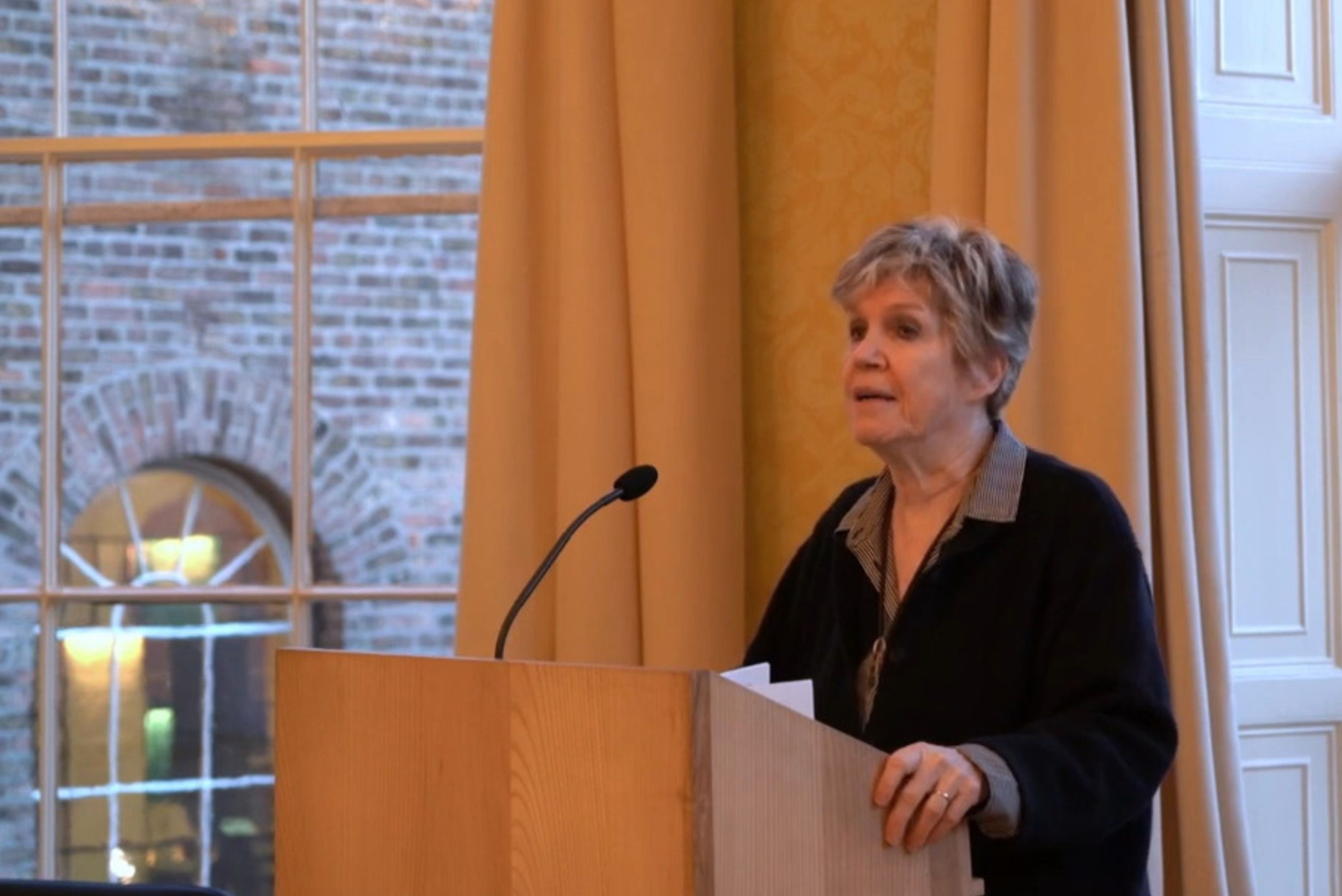
2022 Annual Lecture
Politicizing Human Rights in Palestine/Israel
Speaker: Professor Anat Biletzki
Anat Biletzki is the Albert Schweitzer Professor of Philosophy at Quinnipiac University and Professor of Philosophy (retired) at Tel Aviv University. She has been a visiting scholar/professor at Cambridge University, Harvard University, Boston University, MIT, Bergen University in Norway, the Institute for Advanced Study at Princeton, and the National Humanities Center in North Carolina. She writes on Wittgenstein, Hobbes, analytic philosophy, political thought, digital culture, and human rights. Outside academia, Biletzki has been active in several human rights organizations in Israel for over four decades, serving as chairperson of the board of B’Tselem – the Israeli Information Center for Human Rights in the Occupied Territories – during the second intifada (2001-2006). She has recently published Philosophy of Human Rights: A Systematic Introduction (Routledge 2019).
Lecture description:
In Palestine/Israel, the recent criminalization and tagging of Palestinian human rights groups as “terrorist organizations” by Israel is a cynical political maneuver. A narcissistic view sees “Human Rights” as apolitical; that is, it should be universally conceived, internationally regulated, objectively adjudicated, legally administered, and never instrumentally exploited for particular interests.
However, it is only in explicit political contexts such as Palestine/Israel, that we can make sense of the goal of “Human Rights” and their defenders – to relieve victims of tyranny, oppression, and persecution. Click here to watch.
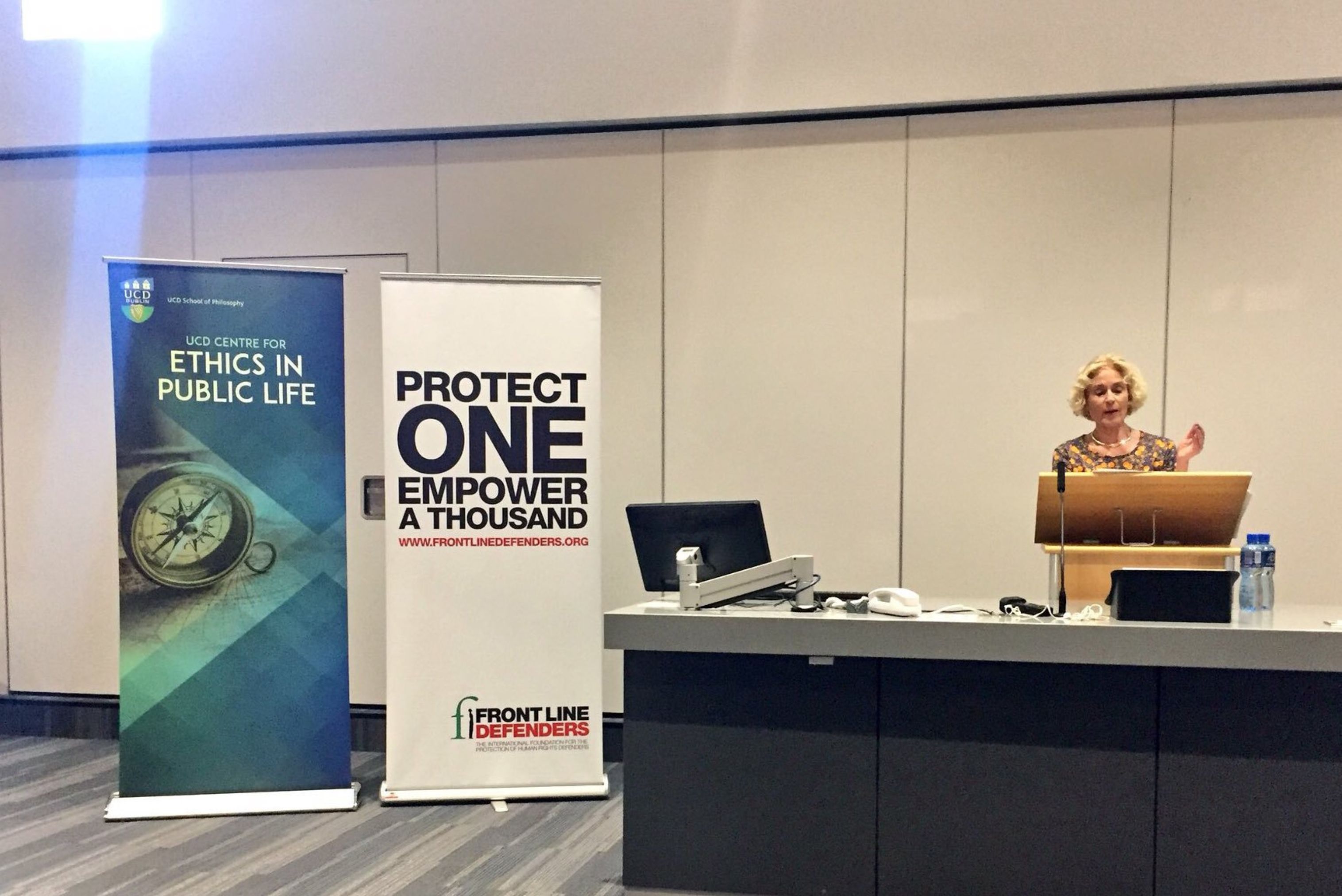
2018 Annual Lecture
Accountability in an Era of Celebrity
Speaker: Professor Martha Nussbaum
Professor Martha Nussbaum, Ernst Freund Distinguished Service Professor of Law and Ethics at the University of Chicago presented the 2018 Annual Lecture. Professor Nussbaum's lecture "Accountability in an Era of Celebrity," was based on her chapter in the book, Ideas that Matter: Democracy, Justice, Rights (2018), edited by Annabelle Lever and Debra Satz. Click here to watch.
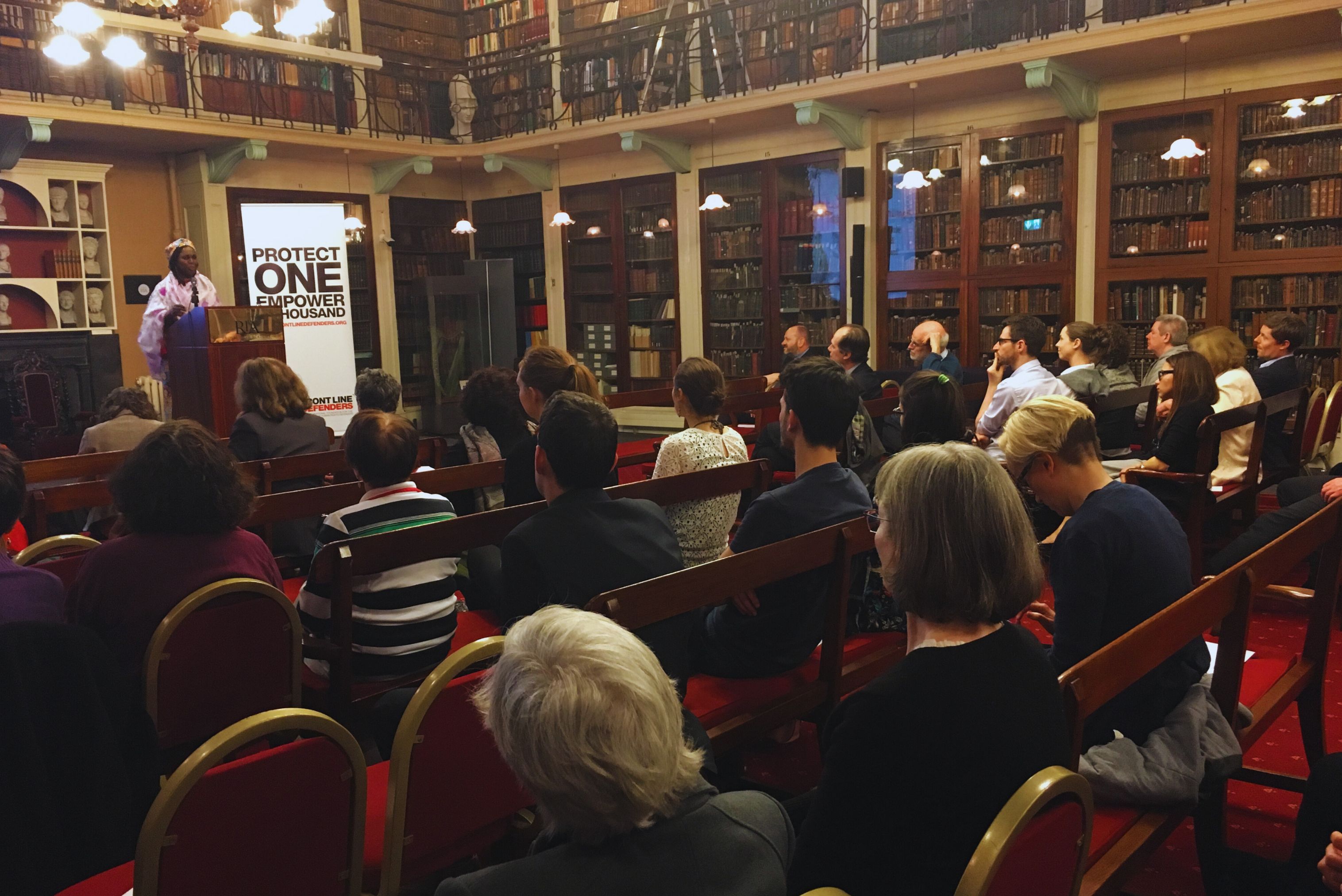
2017 Annual Lecture
Mothers Without Borders: Steering Youth Away from Violent Extremism
Speaker: Hauwa Ibrahim
Nigerian lawyer and women's rights defender Hauwa Ibrahim presented the 2017 Annual Lecture. She addressed the issue of women's rights in Nigeria, at a time when extremist groups like Boko Haram have been on the ascent. Her lecture, Mothers Without Borders: Steering Youth Away from Violent Extremism, presented a grounds-eye view from the frontlines of some of the pressing issues of today, including her personal experiences of raising her children in an environment in which extremist groups are actively recruiting. Click here to watch.
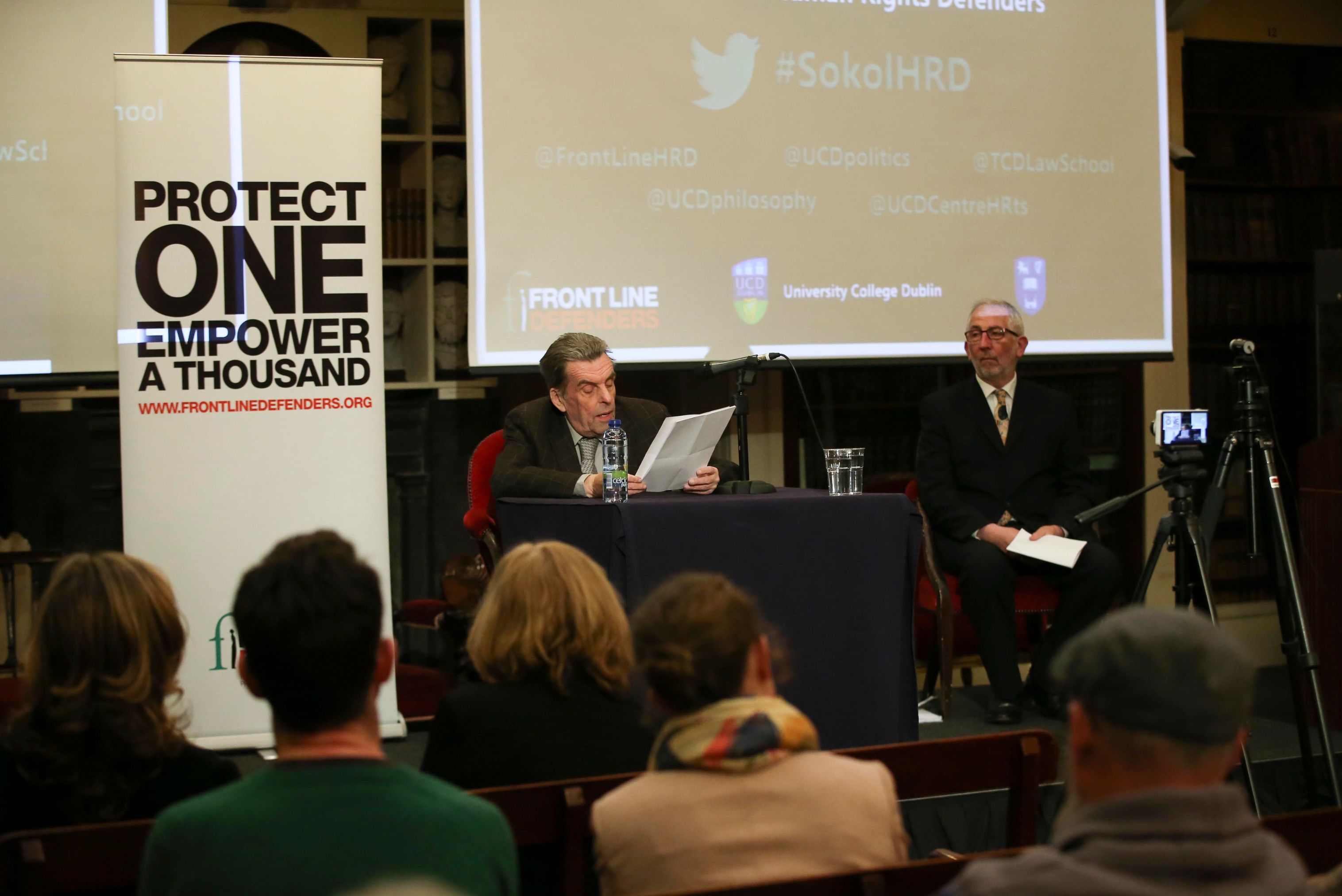
2016 Annual Lecture
Extremism Dictatorship to Democracy - The Role of Human Rights Defenders
Speaker: Professor Jan Sokol
Philosopher Professor Jan Sokol spoke to the topic Dictatorship to Democracy - The Role of Human Rights Defenders for the 2016 Annual Lecture, recounting his experience of the Czechoslovakian transition to democracy (1989 – 1990) and discussing the appropriateness and efficiency of a "dissident" position. Click here to watch.
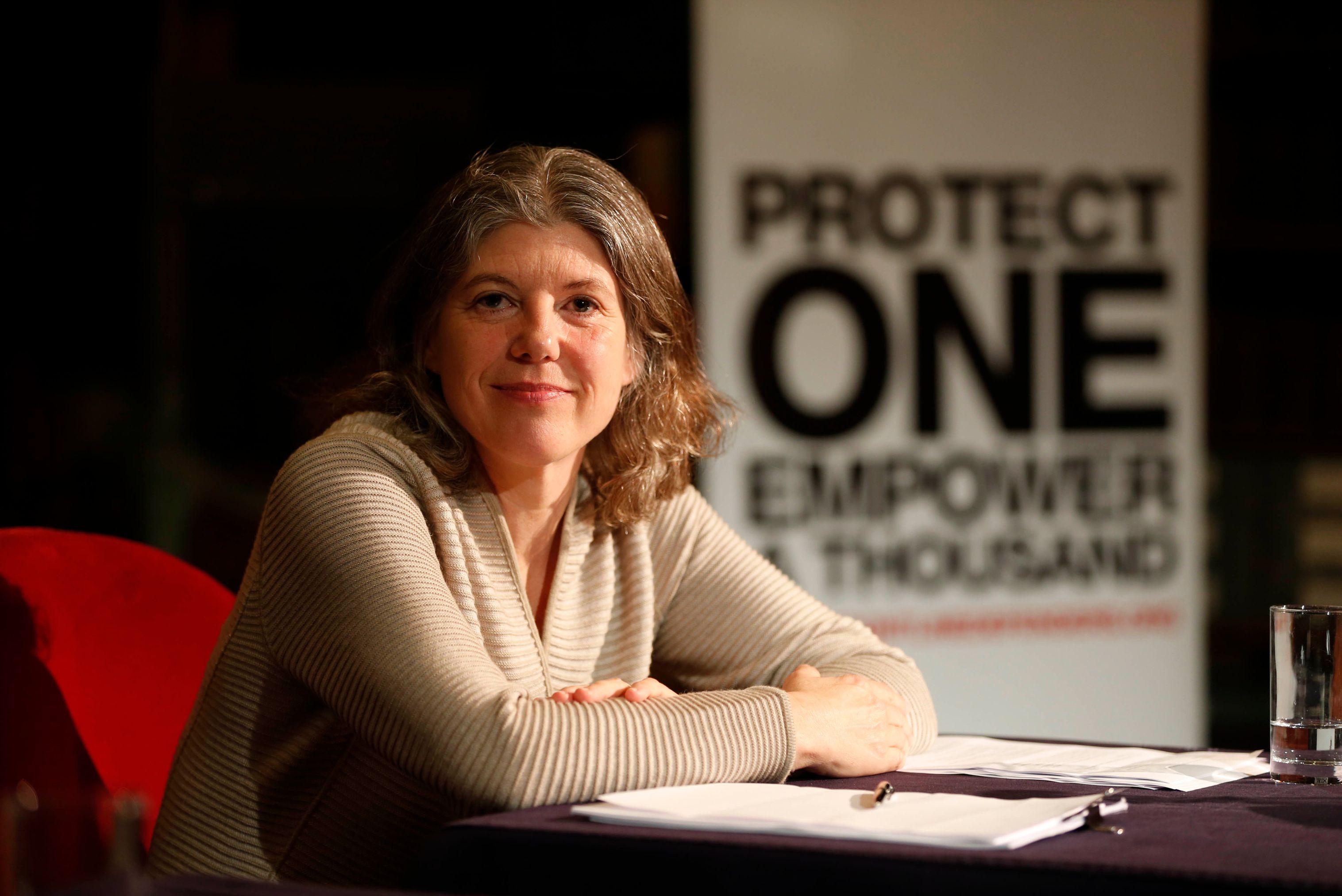
2015 Annual Lecture
A Hardening Climate – Funding Human Rights in Repressive Societies
Speaker: Dr. Sigrid Rausing
In 2015 publisher, writer and philanthropist Dr. Sigrid Rausing shared her insights and vast practical experience on the topic, A Hardening Climate – Funding Human Rights in Repressive Societies. Click here to watch.
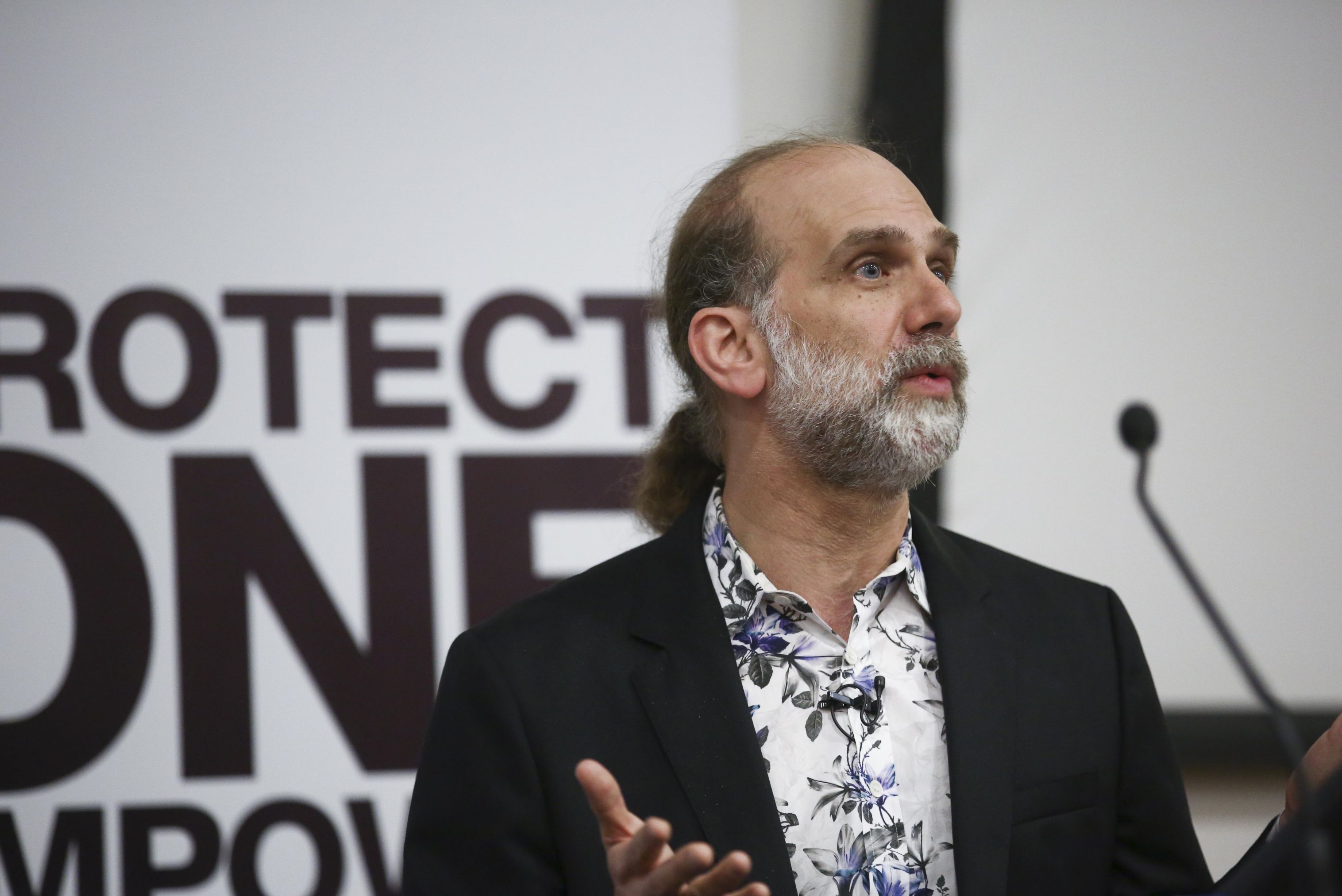
2014 Annual Lecture
Is It Possible to be Safe Online – Human Rights Defenders and the Internet.
Speaker: Bruce Schneier
In 2014, Bruce Schneier, leading computer and internet security expert and fellow at the Berkman Center for Internet & Society at Harvard Law School, gave a stimulating address on the topic Is It Possible to be Safe Online – Human Rights Defenders and the Internet. Click here to watch.
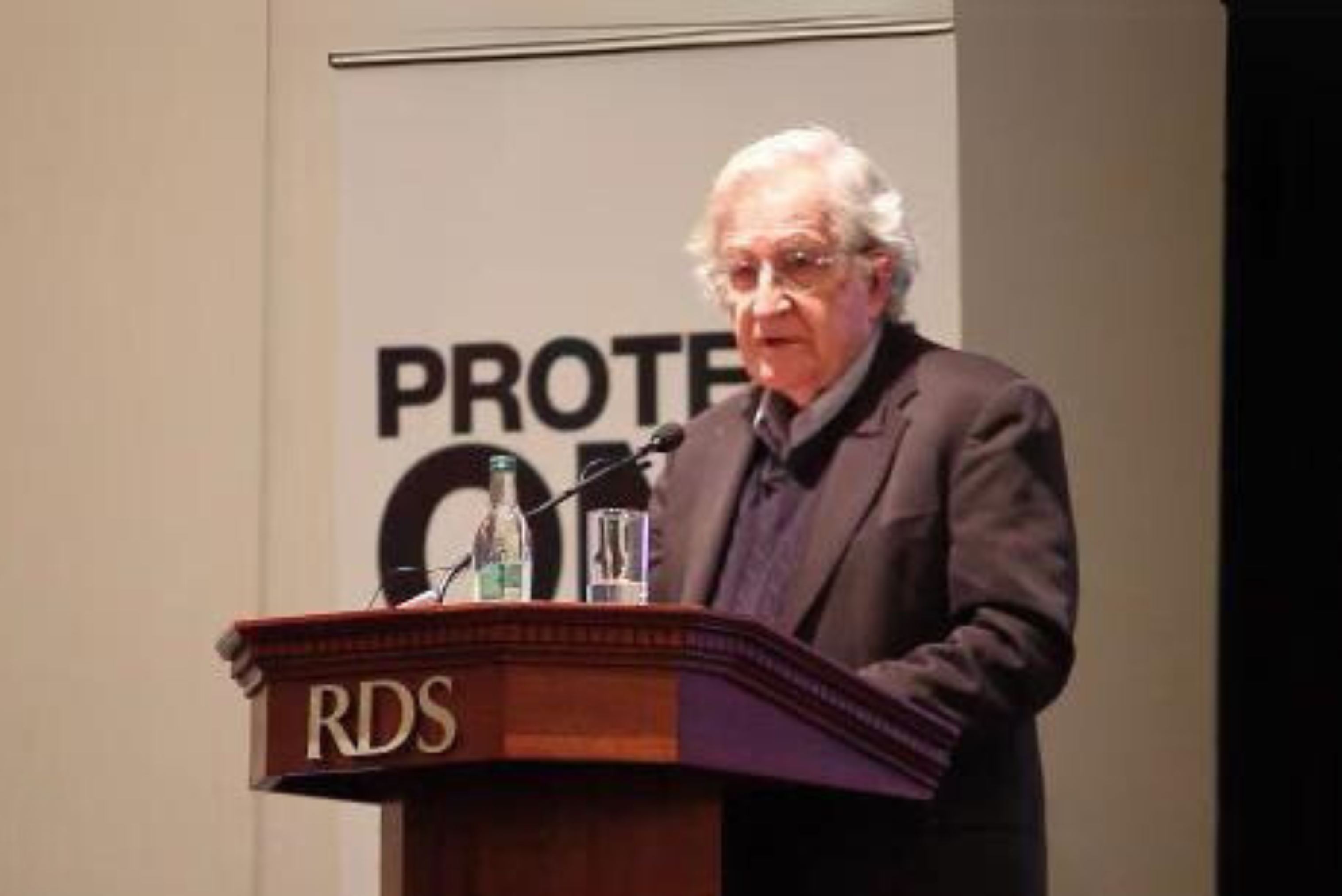
2013 Annual Lecture
Solidarity and the Responsibility to Respect
Speaker: Professor Noam Chomsky
Professor Noam Chomsky (MIT) delivered the inaugural lecture in 2013, with a thought-provoking presentation on the topic of Solidarity and the Responsibility to Respect. Click here to watch.
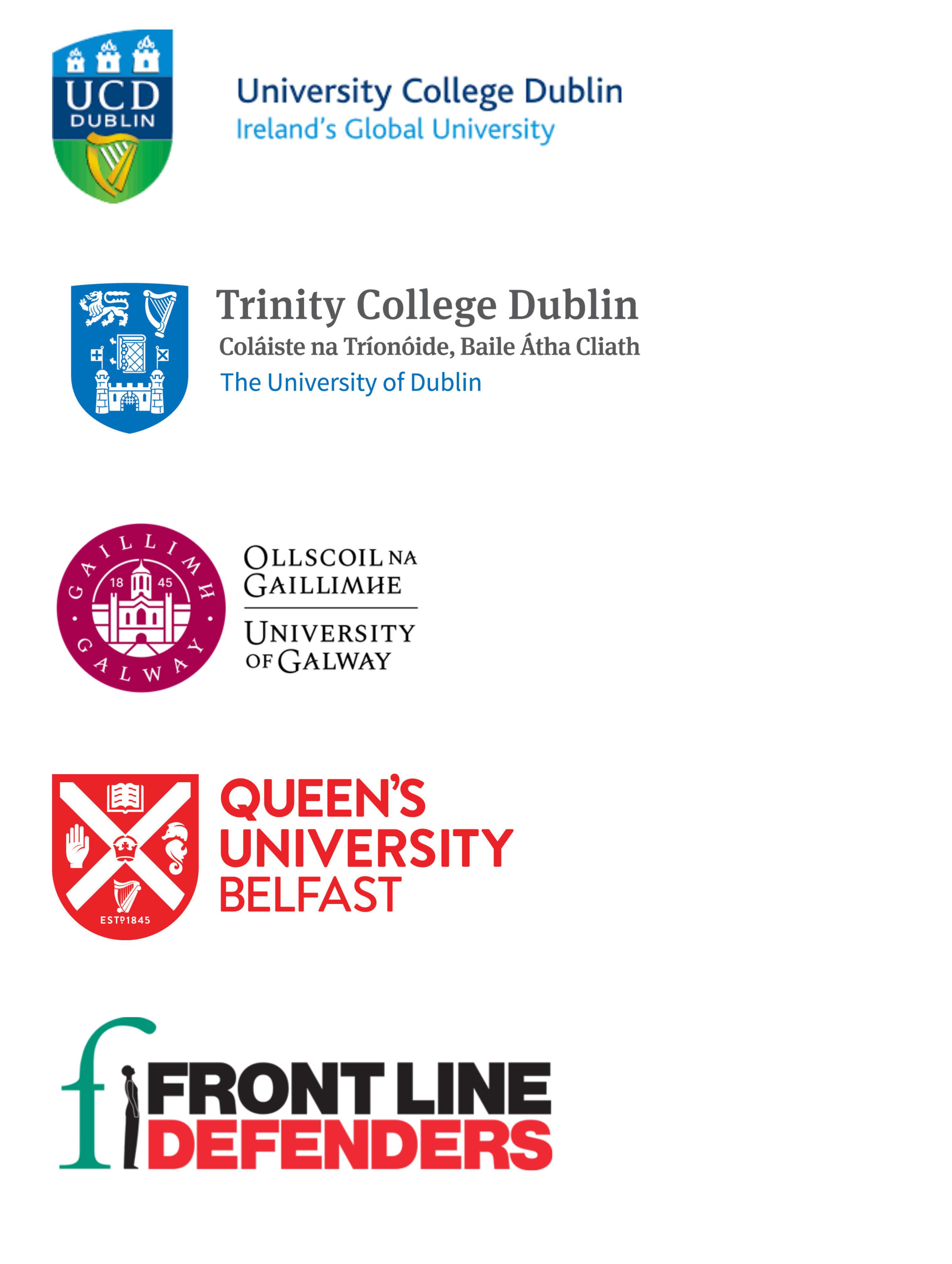
Partners
UCD School of Philosophy is the largest teaching and research centre for Philosophy in Ireland. The School is unique in the broad range of courses offered and its commitment to pluralism in its approach to Philosophy.Areas of expertise include Contemporary European (Continental Philosophy), Analytic Philosophy, Classical Philosophy, Philosophy of Law, Political Philosophy and Cognitive Science. In addition, the interdisciplinary Masters Programme in Philosophy and Public Affairs explores foundational questions in public policy formulation, including issues relevant to the formation of a just society. The issue of a just society connects directly with the concerns and activities of Front Line Defenders which has identified human rights defenders as "key agents of change working towards the creation of more just and equal societies".
UCD School of Politics and International Relations (SPIRe) is the oldest and the largest school of its kind in the Republic of Ireland, ranking in the global top 100. SPIRe is a dynamic, multi-faceted and highly-international school offering exciting and professionally-valuable programmes of study at the undergraduate and graduate levels.Our academic staff are engaged in cutting-edge research on a wide variety of political issues including, among others, ethno-political conflict, human rights, international relations, international political economy, political theory and Ireland's role in the European Union. The School is also home to three research centres: the Centre for Sustainable Development Solutions, the Dublin European Institute, and the Institute for British-Irish Studies.
The UCD Centre for Human Rights is composed of academic staff and researchers at University College Dublin engaged in scholarship in the human rights field. Hosted by the Sutherland School of Law at UCD, the Centre aims to enhance public understanding of human rights through a wide range of activities including publications, conferences, seminars and research projects; and to collaborate with national and international organisations, including national human rights institutions, governmental departments and non-governmental organisations working in the field of human rights.
Trinity College Dublin's Law School is Ireland's oldest and most renowned. The School's commitment to rigorous legal scholarship has placed it at the forefront of legal research in Ireland. The Law School strives to educate people who will be the leaders of the legal profession, the public service and society, and who will demonstrate the highest standards of personal integrity and professional ethics and a deep concern for social justice in their practice of law and public service.
Irish Centre For Human Rights at the University of Ireland Galway is one of the world's premier academic human rights institutions, dedicated to the study of human rights, peace and conflict, international criminal law and humanitarian law, international refugee and migration law, gender and human rights and climate justice. The Centre has developed a global reputation for excellence in the field of human rights teaching, research and advocacy. Every year we attract high quality students to our acclaimed masters and undergraduate programs, as well as to our thriving community of doctoral researchers. Our program of conferences and other events attracts high level human rights policy makers, practitioners and academic experts from across the world. Our graduates are leading the development of international law and practice and humanitarian action across the globe.
The Human Rights Centre at Queen’s University, Belfast was established in 1990 to provide a focus for research and education on human rights. It has since acted as a hub around which interested academics and students organise events, collaborate in research and promote the values inherent in human rights. Members of the human rights centre are active in many different areas – leading and contributing to national and international research projects, publishing academic works, teaching undergraduate and postgraduate students in the School of Law, including on the LLM in International Human Rights Law, and engaging in knowledge transfer activities, including undertaking responses and consultations for civil society, governmental and international organisations. The HRC also organises a lively seminar series bringing internationally respected academics and practitioners to Queen’s throughout the year.
